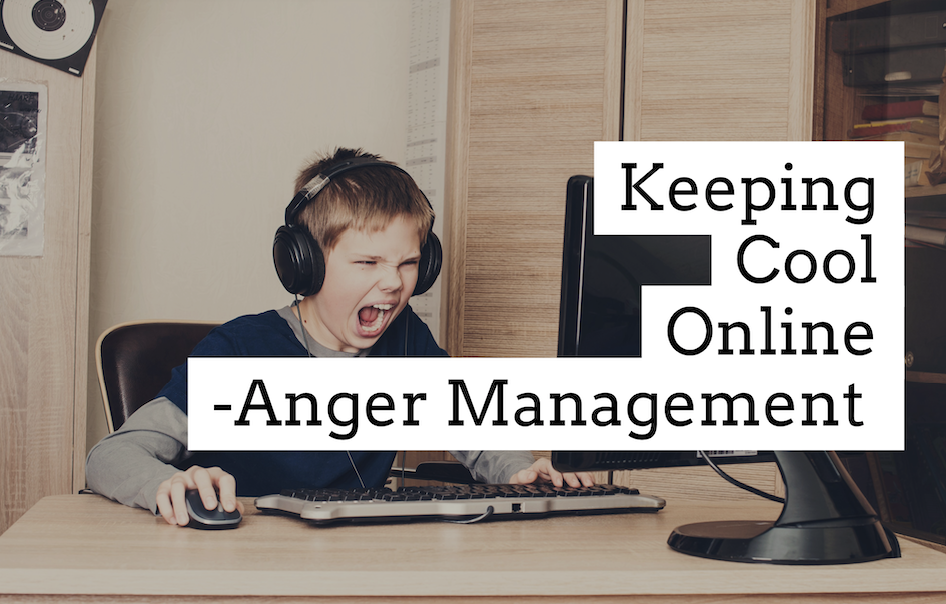Managing Anger: Keeping Cool While Online
The majority of Bullying happens with Anger and compulsion issues. Anger is a normal human emotion. It is as normal as sadness, fear or joy ... Though experiencing anger can quite often be debilitating, and if we have bad reactions to situations of anger, this can often lead to regret. situation.
And let's be honest, we've all screamed at someone who simply didn't deserve it. This follows us to our online world: Facebook, Twitter, Txting - where it becomes all too common to spew hateful, offensive abuse via txt, post or tweet. Falling victim to your initial emotive state and let someone online have a piece of your mind, you could:
Ruin a relationship
Harm your reputation and be labeled as a bully
Get in trouble with your boss, school, friends or even the law
Say something you later regret, making you feel even worse about the
But in our society any display of negative emotion, especially anger, is unacceptable. Even if you honestly feel as though you're right and the victim of your anger deserves some payback, your online assault will always label your actions as inappropriate. And after an eruption of abuse, you often feel terrible. The key is not to suppress anger but learn how to control it effectively.
Top 4 Tips For Managing Anger:
PRATICE H.A.L.T
A simple way to safeguard yourself miscommunications online is to think of the acronym and ask yourself the following questions:
Hungry- Is the fact that I'm Hungry clouding my judgement?
Angry- Is my Anger putting a misleading lens over how I view the situation?
Lonely- Is my Loneliness manipulating the situation?
Tired- Is my Tiredness taking away from what I truly want to say?More here: HALT
KNOW THAT ANGER CAN BE MANAGED
Simply realising that you may not be able to stop feeling angry right now, but you can stop reacting to it. This is proactive versus reactive behavior. Reactive behavior is a trap, by this I mean: a reactive person has their emotions dictated by someone or something that happened.
Being proactive is not a case of being emotionless, or not caring about anything. Rather, it's being in complete control over your emotions. A proactive person will understand the situation without having an immediate reaction and process the information calmly, knowing the incident in question doesn't have to have an immediate response.
YOU HAVE THE POWER: YOU HAVE THE OPTION TO EXPRESS YOUR ANGER WITHOUT GIVING IN TO IT
Next time you find yourself in a situation where you feel like attacking someone online. Then do it and don't send it. Write out the abusive email, type out that vicious txt message, jot down the details of your savage Facebook post. Go into detail about all the reasons why your counterpart is wrong and explain all your frustrations with the situation in question ... But don't send it! Writing it down can be a therapeutic exercise.
This allows you to see the incident with clarity, and it helps you calm down. Quite often you will find that you don't need the entire world to understand that you're right and just, rather you simply need to prove it to yourself - and this process will help with that. Just make sure that there's no contact in the address line, just in case you click 'send' by mistake.
FIGHT OR FLIGHT? CHOOSE FLIGHT
The term 'Fight or Flight' is the physiological response to a threatening situation, which readies the individual to resist forcibly or to walk away. When dealing with anger in the online world, whether it's your anger or anger from another, more often than not it's most effective to WALK AWAY. By this I mean: if someone is frustrating you then remove them from your world by simply shutting down your computer.
Hold the power switch down and watch the cool black screen engulf all your worries. Then get up and literally walk away from your computer, this allows you to decide what you see, controlling your state of mind. For that reason, by walking away you acknowledge that your online avatar isn't another physical part of you, rather you remember that it's simply a communication tool you use when it works for you, not against you.
Dealing with your own anger is one aspect, but how do we manage the anger of others?
Most of you would have learned by now that the internet is roaming with very angry people that have small, shallow lives - quite often referred to as trolls in some circumstances. The best response is to simply leave them be. Often if the angry person has realised that the forum thread has gone silent then they might realise that they've gone too far.
Not reacting to a opponents anger takes the wind out of their sails; thus, exemplifying the fact that you're managing the situation with dignity. Here are some ideas for how to handle angry people:
Delete the offensive comment from your social network page.
Block the offender if you think they are coming back for round two, or if their attack was particularly hurtful. Click here for more on how to Stay Safe Online
If the offender was viciously threatening you, or especially vile you should simply report them. Every social network has a 'Report Abuse' link. And it is anonymous to do so.
Keep calm and have a genuine think. The offender may have overreacted but perhaps you are guilty of setting them off. If this is true, it won't kill you to say "sorry". Unless this is a manipulative game they play regularly, but it is a positive thing to be the first one to apologise.
3 IMPORTANT SIDE NOTES FOR ANGER MANAGEMENT:
The Control Centre Of Your Life Is Your Attitude:
Take a moment to consider how often some people always have bad work colleagues, always have rude neighbours or are always breaking up with their partner thinking that they've been dating a troubled individual.
Life is what you make of it and we can create our social reality. For that reason, if you continuously find animosity and anger online - perhaps you took it there.
What Goes Around Comes Around - Compliments help you create an ideal online environment:
You may have heard that Life is an echo - what you send out comes back. What you sow you reap. What you give, you get. What you see in others exists in you. This is a valid philosophy for living life which I talk about in another article; How to Make Friends
Our thought is that if you start to encourage people, send out positive comments and responses and aim to make people feel good - then others will start to do the same to you. You start to build a positive reputation, and even if others don't respond positively to you straight away, you still feel good about yourself.
Hate is a trap:
You won't go through life loving everybody, and you can't expect everyone to love you. It's okay, that's life. You're guaranteed to experience people online who really get up your nose. But before you retaliate take a moment to look at how insulting txts, emails, and posts can backfire.
The receiver may reciprocate, resulting in the two of you feeling bad. Lose, lose situation.
Often the people who hurt or offend us are friends who have done something careless or thoughtless. It would be better to attempt to heal the friendship, offline! Rather than attacking him or her online which results in a regretful and always awkward situation - and once again it inevitably worsens how you feel.
No-one admires those who hate. By building a reputation of hate, you'll soon find yourself becoming isolated - people will often distance themselves from you.
The desire to hurt someone makes you bitter.
When you click 'send' you can't get it back. It's very common to regret things you say and do in moments of anger.
Remember; Hate's an angry monster. Don't feed it. Stave it. Let me know if you have any anger handling techniques that have worked for you.


